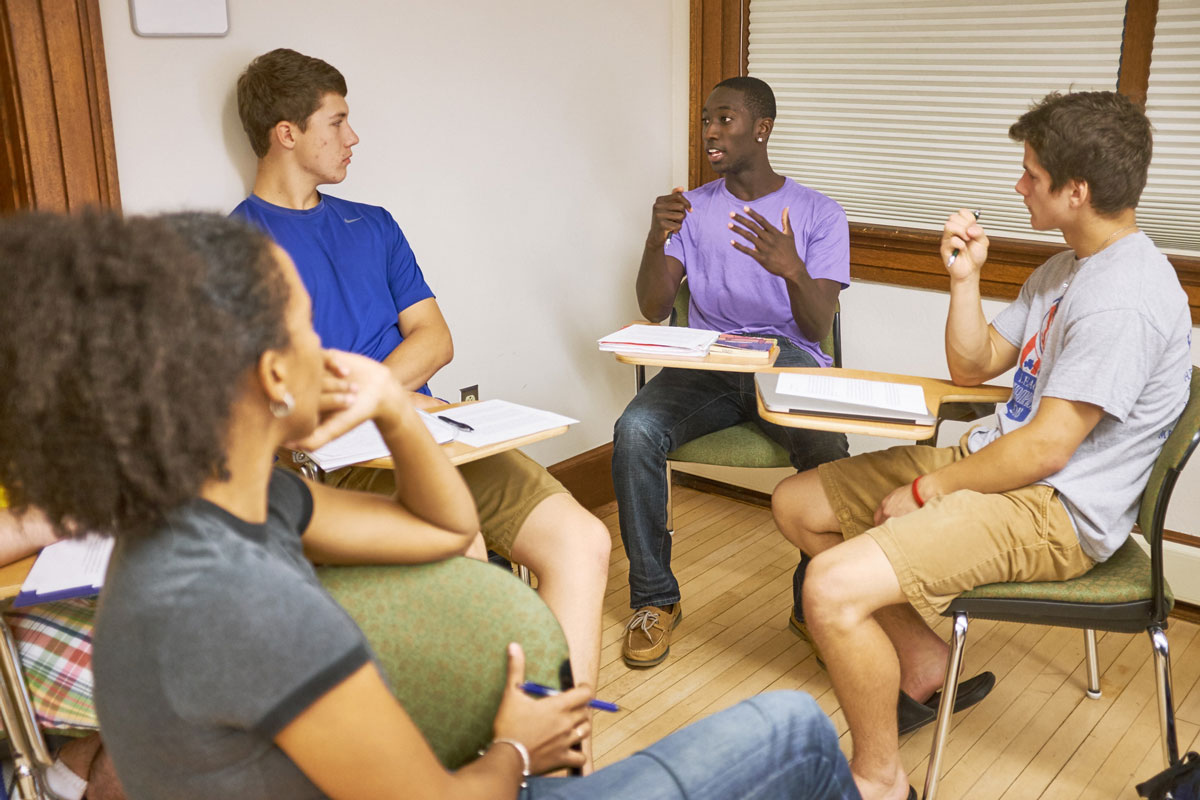The liberal arts provide a breadth of learning opportunities through classrooms and beyond. Since 2013, Denison students have participated in Pay It Forward (PIF), a service-learning program that infuses the study of philanthropy and course-related community service hours into the classroom. The program, which is run by the Ohio Campus Compact, works with professors to teach students how to invest time and dollars to make a meaningful impact in the community. PIF provides the classroom with a $2,500 stake as a springboard.
Assistant Professor of Education Emily Nemeth has incorporated the Pay It Forward program in her class, “Critical Pedagogy: Gender, Race, and Class in U.S. Education.” The service-learning component adds a valuable dimension to her course.
“Critical pedagogy emphasizes the reciprocal nature of relationships between teachers and students — both groups teach and both groups learn — and encourages them to collaboratively explore issues of justice and equity in their local and global communities,” said Nemeth. “The Pay It Forward program allows students to actually practice critical pedagogy and to see the ways that this approach to teaching and learning can be meaningful for everyone in the classroom,” said Nemeth.
In the fall of 2013, Nemeth’s class partnered with the ProTeen Center, a nonprofit that supports students who are completing their high school diploma online. Denison students worked one-on-one each week with a student who was committed to completing their high school career.
In addition to their service-learning hours, Denison students formed community boards that looked at three separate though related issues within the Center. These were worked up into proposals that were presented to the Center as candidates for the $2,500 PIF stipend.
- The assessment of current resources, supplies, infrastructure within the Center and identification of ways to enhance the learning environment for the students and staff.
- The exploration of a potential, sustainable network for externships and connections for youth at the Center with these professionals in their local community.
- An assessment of the students’ writing skills and identification of a sustainable way to support their development in this area over time.
They made important connections between the concepts and ideas we discussed in class, and what they experienced at the ProTeen Center.
One of Nemeth’s favorite class sessions was the debate over how they felt the PIF dollars should be spent. Students drew on class readings and concepts for their arguments, and referenced actual experiences they had with community partners to ground their claims.
“I frequently see students making explicit connections between readings and their service-learning placement. In fact, during our last class session, one of the students led other students in an analysis of our service-learning partnership through a critical theory lens, a focus of the course. They made important connections between the concepts and ideas we discussed in class, and what they experienced at the ProTeen Center,” said Nemeth.
“The experiences Denison students had at the ProTeen Center both informed and complicated the ideas we explored in class,” she added. “Sometimes their experiences affirmed the theories we discussed, and in other instances, they found ways to challenge and extend the theories based on what they saw. This component added a lot of value to the class.”
This article was excerpted from a Q & A originally published by the Ohio Campus Compact.





